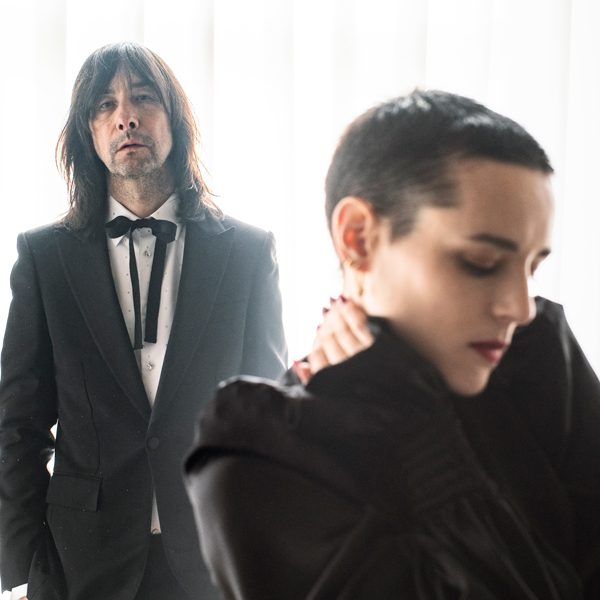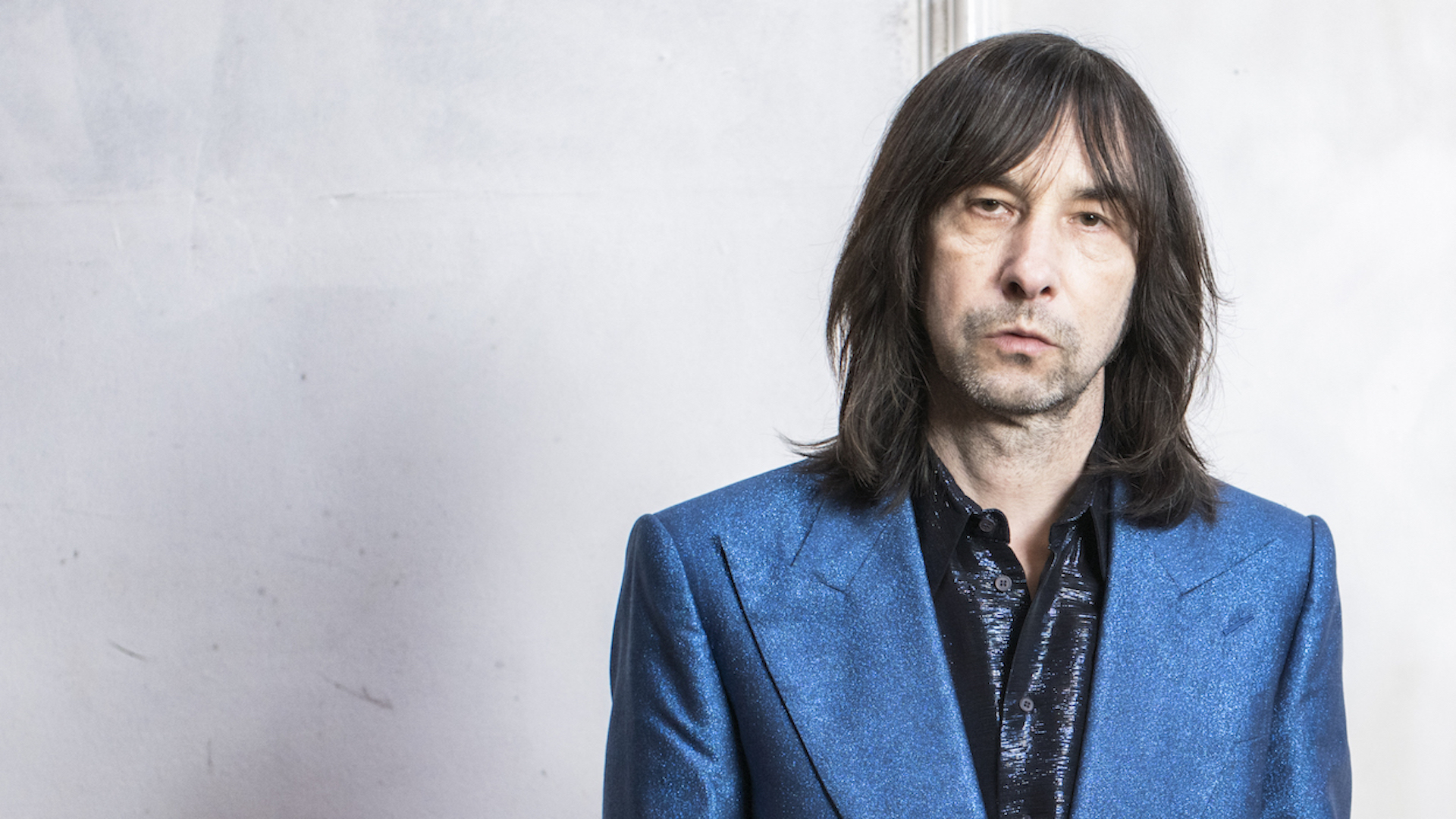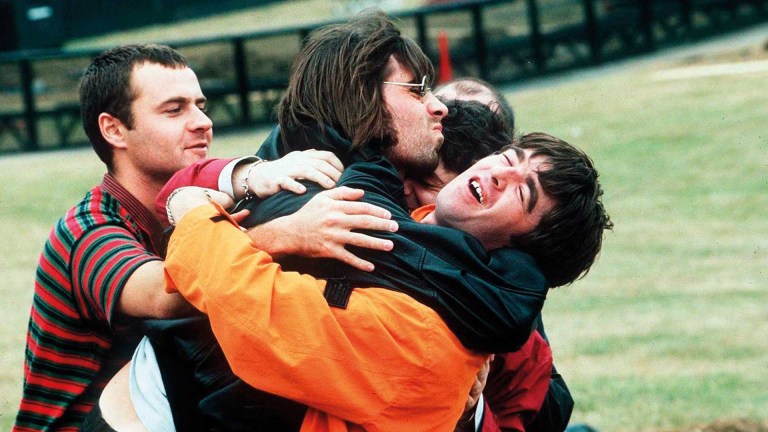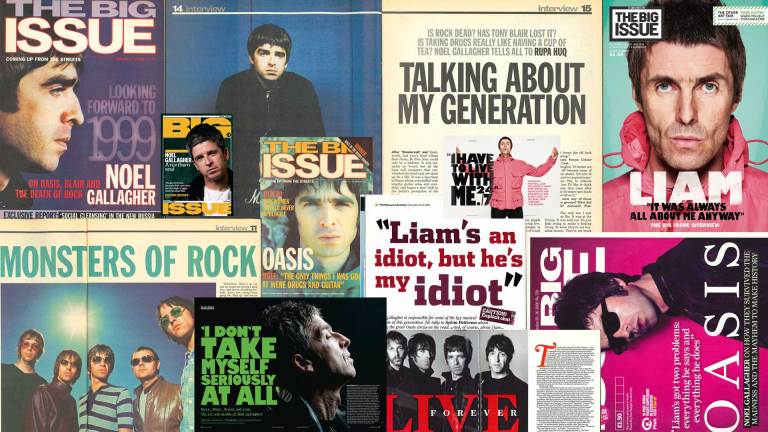“I’m a character who thinks and feels deeply,” 59-year-old Glaswegian Bobby Gillespie says, speaking to The Big Issue from his London home ahead of the release of an album few Primal Scream fans saw coming.
“I always wanted to make music that meant so much to people that it gave them strength. I know we’ve done records in the past like Rocks, Movin’ On Up and Come Together that are celebratory and ‘up’. The party records.
“But I wanted to express the part of myself that was a bit more honest, talking about raw adult subject matter which was not just cathartic for me to write but that would hopefully connect with other people.”
The result is Utopian Ashes, recorded with French artist and Savages frontwoman Jehnny Beth. It’s an LP closer to the classic Americana duet dynamic of Gram Parsons and Emmylou Harris than the “speed freak intense paranoia” of some of Primal Scream’s classic oeuvre.
While the rambunctious rock-haze of his band’s heyday could have carried a cautionary sticker about the pitfalls of recreational indulgence, new tracks such as Remember We Were Lovers are to be approached with caution too.
Yet this is not the territory of youthful euphoria. Rather, it’s the hollow rattle of middle age.
“It’s more adult, more serious,” Gillespie says, the words of a man who tamed the beast. “We are writing the kind of songs and making the kind of record that we should be at this age.
“Mates of mine of a certain age really identified when we put the song Remember We Were Lovers on social media. I don’t think I’ve ever had that kind of connection to a song.”
Gillespie has been married to wife Katy England for 15 years, and the pair have two sons. While some of these songs spring from the well of lived experience, it would be too simple to say they were autobiographical.
“I’m happily married,” he says. “I’ve been with my wife for 20 years. People are always going to project stuff, but everything’s cool, man. I’m a writer, and I’m trying to write about adults. The struggle. Marriage. Family. It’s maybe the hardest thing I’ve ever had to do. It has given me a new respect for my parents. Everybody’s parents, actually.”
“Some writers and musicians loved lockdown and are embarrassed to say, because a lot of people suffered, lost their jobs and stuff”Bobby Gillespie
Gillespie is on voluble form when he checks in for a Zoom meeting with The Big Issue.
One minute he’s talking about Franco Berardi, the Italian cultural theorist whose spoken-word album he contributed a poetry reading to last March; the next, we’re discussing Celtic’s dramatic collapse.
“I can tell you’re a Celtic fan,” he says, laughing. “Enlightened man. Cultured. You think about things. And you can speak.”
No need for flattery, Bobby. We’re on the same page here.
But, what a mess, eh?
“All I can say is give out but don’t give up.”
As a role model, Gillespie put more than a few wrinkles on the brows of parents in the 1990s, his band’s excesses rolling along amid a throbbing soundtrack of dealers dealin’ and clap itchin’.
He has spoken about band members turning up to recording sessions in the 1990s after the haze of their hit album Screamadelica had passed, just to score heroin. But the hedonism came at a cost.
“It’s hard to talk about dead people,” he says, when I raise the subject of some Scream associates, including former guitarist Robert ‘Throb’ Young, who died aged 49 in 2014, eight years after leaving the band. It’s a topic whose detail is reserved for his autobiography, to be called Tenement Kid, planned for release later this year.
“I write with affection, love and admiration for them in my book. It’s hard to talk about it in an interview. But as artists, we never look back. We just keep going.”
He’s sober now, and has been since the late 2000s. The reduced stimulation of life amid a pandemic was as much to his liking as anything he took in the 1990s.
“I’m lucky enough that I am able to live a creative life and I was able to write a book during lockdown,” he says. “It’s something I decided I was going to do before coronavirus happened.
“Some writers and musicians loved lockdown and are embarrassed to say, because a lot of people suffered, lost their jobs and stuff.
“But as songwriters and artists, it was business as usual. I’m not that sociable a person. My life is really going to the studio, trying to make some work. It’s not hermetic, but it’s been business as usual for me. Except I can’t go to the record shop.”
Now he can, and from July, his latest offering will be on the shelves.
Utopian Ashes has its roots in a meeting between the two at a fashion show in Paris. Gillespie had already seen Beth perform at Yoko Ono’s Meltdown in 2015, opening for Iggy Pop.
Later that year, they performed together on stage at the final Suicide gig at London’s Barbican, and in 2016 Beth joined Gillespie on stage with Primal Scream at Bristol Downs to cover Lee Hazlewood and Nancy Sinatra’s Some Velvet Morning (which Primal Scream had recorded alongside Kate Moss on their 2002 album Evil Heat).
A collaboration seemed inevitable and took shape gradually, since their first sessions in Paris in 2017.

“We didn’t know at that time what it was going to be. We didn’t know if we were helping her or she was helping us. We just knew that we weren’t making another Primal Scream record, because we’d already made a lot of them.
“When Jehnny and I sang together in Paris, it was like magic. Effortless. It just fitted perfectly. You can’t just do a duets record with just anybody.
“It evolved naturally and, because the songs evolved slowly, there was a lot of space in them, which allowed me to write about this subject matter. It wasn’t electronic techno and hardcore rock. It wasn’t paranoid and angry. There was a gentleness to the rhythm. It let my words breathe, and the songs, too. It wasn’t as claustrophobic as some of the Primal Scream stuff can be.”
One track, the waltzing English Town, elevates the focus from domestic matters of the heart to domestic politics, a rummage through the hopeless fag ends of broken Britain, from Poundland to the burned-out pub. We’re a long way from Movin’ On Up here.
He says: “It’s not judgemental, it’s not finger-pointing. It’s full of empathy and sadness. As the country becomes more nationalistic, inward-looking, racist and xenophobic, it’s not a cause for celebration, is it?”
He’s at pains to point out that it’s not an anti-English song. “This is country-wide. It could be called Scottish Town. It’s a horror show, what’s happening. There’s such a sadness. It’s a song about wanting equality. It’s definitely not a put-down.”
Gillespie is cautious about airing his politics when it comes to Scotland. He refers to the independence debate as “interesting” but is careful about upsetting his old man, Bob, a former Glasgow Labour Party candidate.
“Families can be divided by these things, and I have to watch what I say,” says this sober wild man of rock’n’roll, getting his rocks off treading carefully through middle age.
“Nationalism scares me. But I think independence is going to happen. And if it does, I support it. I’d love Scotland to be a social democratic, liberal, free-thinking outward-looking country, a fairer, more inclusive society.”
He’d similar hopes for Labour at the last UK election in 2019.
“I went to see Jeremy Corbyn at Union Chapel in Islington [in North London] the night before the election. It was like being at a Clash concert in 1977. Everybody there wanted to change the world for the better.
“All the young people I knew were really behind Corbyn, and it inspired me, that that radical thinking and spirituality was still out there.
“Corbyn wasn’t charismatic, but his movement was incredible. One thing I’m sure about is that the next 15 years on these islands are going to be monumental.”
Utopian Ashes by Bobby Gillespie and Jehnny Beth is out on July 2 on Sony










